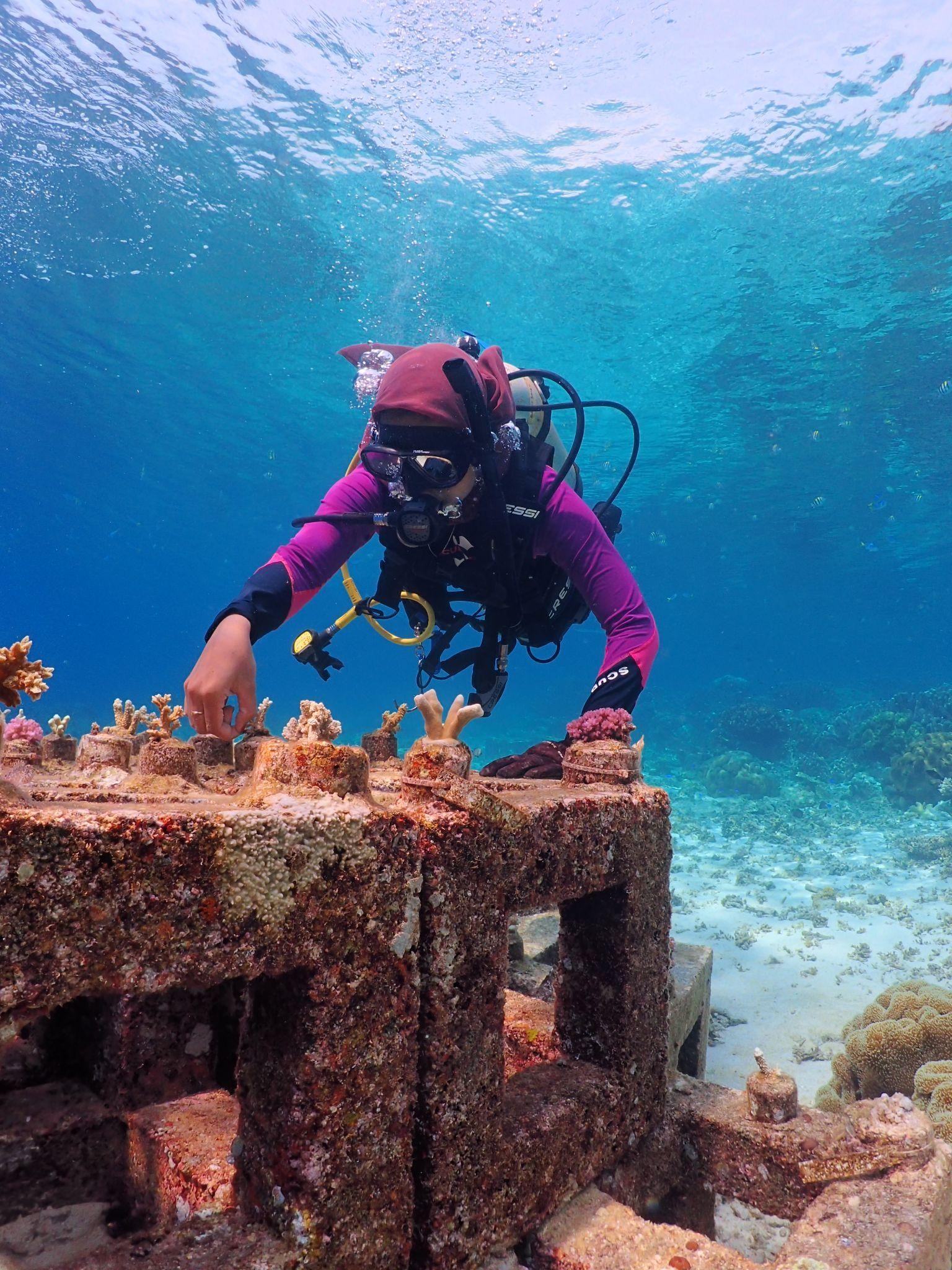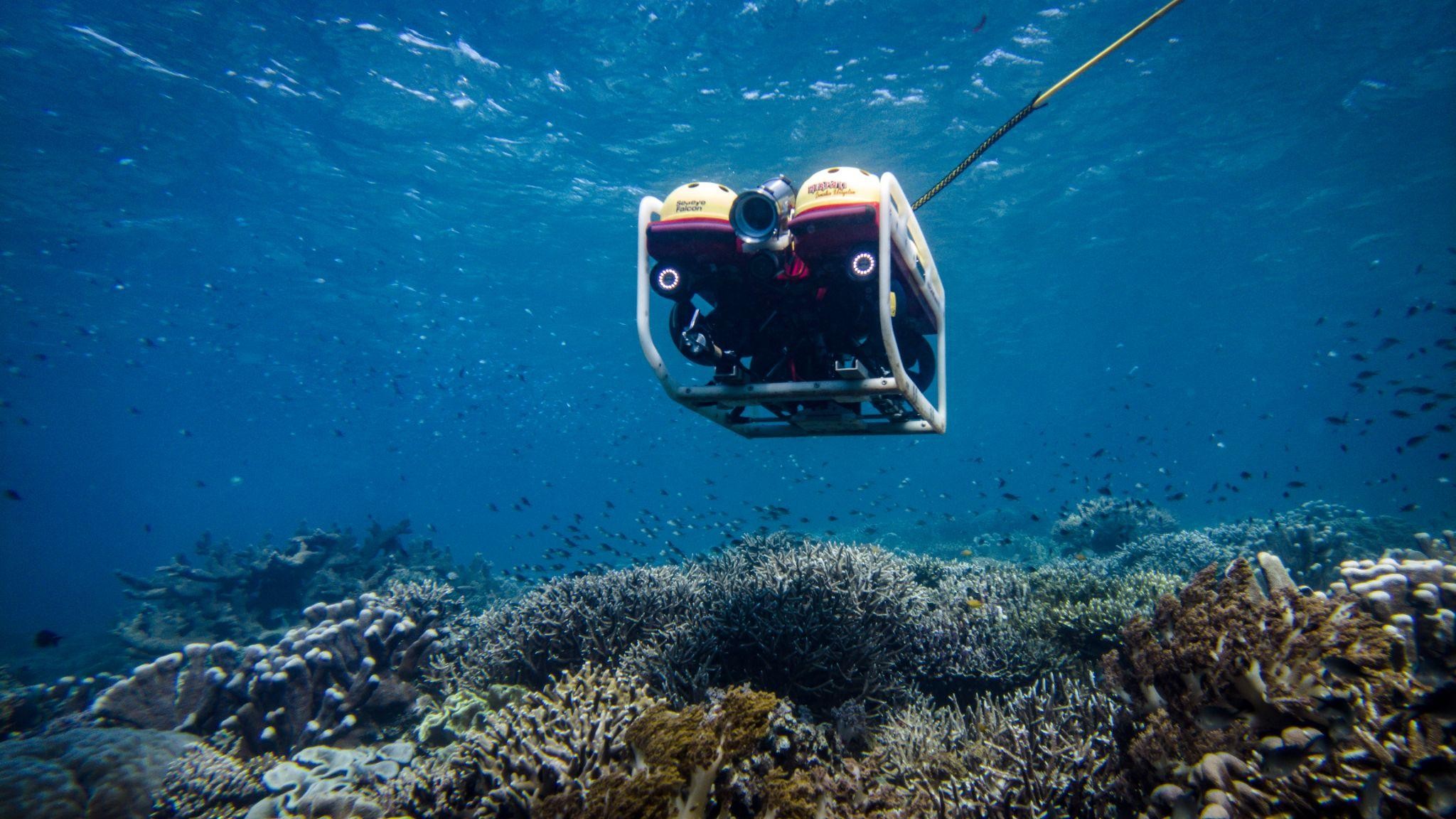


14 April 2025
Beneath the blistering sun and relentless tides of Obi Island’s coastal waters, Prasari Riski Hutami stands out with her strong determination. Prasari Riski Hutami, a marine diver from Gunungkidul, Yogyakarta, is part of the environmental monitoring team at Harita Nickel, a major player in Indonesia’s mining sector. With a 14-kilogram oxygen tank on her back, she dives regularly to inspect artificial coral reefs and assess the health of the marine ecosystem surrounding the company’s operations.
The role carried out by Prasari is a tangible reflection of Harita Nickel’s commitment to preserving the marine environment around Obi Island. Since 2022, the company has implemented a coral reef restoration program using Reef Cubes—hollow structures made from an environmentally friendly mix of concrete and nickel slag. By March 2025, a total of 2,092 Reef Cubes will have been deployed across three strategic locations: Pasturi Island, the waters near the company’s port, and the coastal area surrounding the new settlement of Kawasi Village.

Over three years of implementation, quarterly monitoring has recorded coral growth from the Pocillopora and Porites genera, with an average growth range of 0.03 to 4.79 centimetres. This data suggests that the artificial substrates used have been effective in supporting the natural regeneration of coral reefs. The program has also had a positive impact on the coastal economy: surveys have identified 136 fish species from 64 genera and 24 families living around the Reef Cubes, including economically valuable fish such as red grouper, rabbitfish, snapper, and yellowtail.
“What began as a college hobby at IPB (Bogor Agricultural Institute) has become a full-time role. Diving isn’t just work, it’s a personal release,” Prasari said in an interview. Since joining Harita Nickel in 2022, she has taken part in seawater sampling, underwater documentation, and even the installation of the Reef Cubes themselves. “It’s physically demanding, but I’m proud to help protect the seam,” she added.
Monitoring is conducted weekly, not just by internal staff but also by independent third parties to ensure objective and transparent data. One of the most critical components of this work is underwater documentation, a task Prasari often handles solo.

“Many women play key roles here,” she added. “Harita Nickel fosters an environment where women can grow and lead.” To date, Prasari has completed dives as deep as 40 meters, recording sightings of sharks, sea turtles, Napoleon wrasse, and clownfish, living proof that the Kawasi waters remain vibrant and alive.
Through Prasari’s story and the success of the coral reef restoration program, Harita Nickel shows that mining can go hand in hand with protecting the environment. It’s a collaboration of technology, courage, and social responsibility that reflects Harita Nickel’s role as a sustainable company in Indonesia.
Go Top